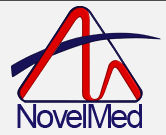预约演示
更新于:2025-05-07
Atypical Hemolytic Uremic Syndrome
非典型溶血性尿毒症综合征
更新于:2025-05-07
基本信息
别名 Atypical HUS、Atypical Hemolytic Uremic Syndrome、Atypical Hemolytic-Uremic Syndrome + [33] |
简介 An hereditary hemolytic uremic syndrome associated with variations in the gene that encodes COMPLEMENT FACTOR H, or the related proteins CFHR1 and CFHR3. Disease often progresses to CHRONIC KIDNEY FAILURE without the prodromal symptoms of ENTEROCOLITIS and DIARRHEA that characterize typical hemolytic uremic syndrome. |
关联
28
项与 非典型溶血性尿毒症综合征 相关的药物靶点 |
作用机制 C5抑制剂 |
在研适应症 |
最高研发阶段批准上市 |
首次获批国家/地区 中国 |
首次获批日期2024-02-06 |
靶点 |
作用机制 CFB抑制剂 |
最高研发阶段批准上市 |
首次获批国家/地区 美国 |
首次获批日期2023-12-05 |
靶点 |
作用机制 C5抑制剂 |
在研适应症 |
非在研适应症- |
最高研发阶段批准上市 |
首次获批国家/地区 欧盟 [+3] |
首次获批日期2023-05-26 |
62
项与 非典型溶血性尿毒症综合征 相关的临床试验NCT05684159
A Phase II, Open-Label Study of NM8074 in Patients with Atypical Hemolytic Uremic Syndrome (aHUS)
This is a Phase II, open-label study designed to determine if intravenously administered NM8074 results in remission from TMA in treatment-naïve aHUS patients.
开始日期2025-07-01 |
申办/合作机构 |
CTIS2023-504550-35-00
A multicenter, single arm, open-label study to evaluate efficacy and safety of switching from anti-C5 antibody therapy to iptacopan therapy in study participants with aHUS - CLNP023F12302
开始日期2025-04-03 |
申办/合作机构 |
NCT06312644
Observational Study of Ultomiris® (Ravulizumab) Safety in Pregnancy
The primary objective of this study is to describe the frequency and characteristics of pregnancy outcomes and maternal complications among participants exposed to Ultomiris and to describe the frequency and characteristics of selected fetal/neonatal/infant outcomes in utero, at birth, and through 1 year of age after exposure in utero or via breastmilk.
开始日期2024-12-18 |
100 项与 非典型溶血性尿毒症综合征 相关的临床结果
登录后查看更多信息
100 项与 非典型溶血性尿毒症综合征 相关的转化医学
登录后查看更多信息
0 项与 非典型溶血性尿毒症综合征 相关的专利(医药)
登录后查看更多信息
2,327
项与 非典型溶血性尿毒症综合征 相关的文献(医药)2025-08-01·Immunology Letters
Autoantibodies and therapeutic antibodies against complement factor H
Review
作者: Trouw, Leendert A ; van Kooten, Cees ; Wang, Haiyu ; Nugteren, Saskia ; Gelderman, Kyra A
2025-05-01·Pediatric Nephrology
The role of the complement system in Shiga toxin-associated hemolytic uremic syndrome
Article
作者: Vallés, Patricia G ; Godoy, Clara Pott ; Marino, Raul ; Bocanegra, Victoria ; Cacciamani, Valeria ; Costantino, Valeria V ; Pinto, Sheila ; Benardon, M Eugenia ; de Córdoba, Santiago Rodríguez ; Luna, Mariana ; Miatello, Roberto ; Lorenzo, Andrea F Gil
2025-04-11·Medicine
Plasma exchange combined with eculizumab in the management of atypical hemolytic uremic in pediatric patients: A case report
Article
作者: Li, Xiaolu ; Liu, Zhenzhen ; Liu, Zeng ; Yang, Lian ; He, Lanfen ; Sun, Mingcan ; Liu, Fan ; Gu, Yan
403
项与 非典型溶血性尿毒症综合征 相关的新闻(医药)2025-04-30
关注并星标CPHI制药在线2025年4月23日,强生FcRn抗体尼卡利单抗在华申报上市,剑指抗AChR抗体阳性的成人与青少年全身型重症肌无力(gMG)。作为全球首款覆盖12岁以上青少年的FcRn抑制剂,其III期研究显示患者日常活动能力提升超60%,且安全性媲美安慰剂。机制突破:靶向致病抗体的创新疗法(一)FcRn抗体的作用机制在自身免疫性疾病的发病机制中,致病性IgG抗体往往扮演着关键角色。尼卡利单抗作为一款FcRn抗体,其作用机制极具创新性。新生儿Fc受体(FcRn)在维持IgG抗体的体内平衡中发挥着核心作用,它能够与IgG抗体结合,从而避免IgG被溶酶体降解,实现IgG抗体的循环再利用。而尼卡利单抗则凭借其高亲和力,特异性地与FcRn紧密结合。当尼卡利单抗与FcRn结合后,便阻断了IgG抗体与FcRn的相互作用,使得IgG抗体无法再被循环利用。这些失去“庇护”的IgG抗体,会被单核细胞和内皮细胞摄入,随后在细胞内被溶酶体降解。这一过程就像是精准打击,尼卡利单抗能够针对性地降低血清IgG水平,尤其是那些致病性IgG抗体的水平,从而有效减轻自身免疫反应。在青少年全身性重症肌无力(gMG)患者中,尼卡利单抗治疗后总血清IgG减少了69%,显著改善了患者的病情。(二)与传统免疫抑制剂的区别传统免疫抑制剂在治疗自身免疫性疾病时,虽然能够抑制免疫系统的过度活跃,但往往缺乏特异性,会对整体免疫功能产生广泛的抑制作用。这就好比“地毯式轰炸”,在抑制异常免疫反应的同时,也削弱了身体正常的免疫防御能力,导致患者更容易受到感染等并发症的困扰。长期使用传统免疫抑制剂还可能引发一系列不良反应,如肝肾功能损害、骨髓抑制等,严重影响患者的生活质量和长期健康。尼卡利单抗则截然不同,它是一种精准靶向治疗药物,仅针对FcRn进行作用。这种精准性使得尼卡利单抗在降低致病性IgG抗体水平的同时,能够最 大程度地保持其他免疫功能的正常运作。对于需要长期治疗的青少年患者而言,这一优势尤为重要。青少年正处于生长发育的关键时期,保持正常的免疫功能对于他们抵御外界病原体、维持身体健康至关重要。尼卡利单抗不损伤整体免疫功能的特点,能够在有效治疗疾病的同时,减少对青少年生长发育的潜在不良影响。尼卡利单抗还具有潜在的妊娠期用药拓展价值。由于它能够阻断IgG与胎盘中FcRn的结合,防止母体同种抗体通过胎盘转移到胎儿,这为妊娠期自身免疫性疾病的治疗提供了新的可能性,有望为孕妇和胎儿的健康保驾护航。临床验证:数据支撑的显著疗效(一)成人gMG患者的临床数据临床研究是验证药物疗效的关键环节,对于尼卡利单抗而言,其在成人gMG患者中的表现令人瞩目。基于III期Vivacity-MG3研究,这是一项双盲安慰剂对照研究,招募了大量AChR+、MuSK+和/或LRP4+患者,约占gMG患者总数的95%,具有广泛的代表性。在这项研究中,主要终点聚焦于抗体阳性患者在第22、23和24周内MG-ADL评分相对于基线的平均变化。数据显示,接受尼卡利单抗联合标准治疗(SOC)的患者在MG-ADL评分上改善了4.70分,而同期接受安慰剂+SOC治疗的患者从基线获得的改善仅为3.25分,二者相比具有显著差异(P=0.002)。MG-ADL评分是衡量患者日常生活活动能力的重要指标,这一评分的显著提升,意味着患者在日常生活中的诸多方面,如进食、吞咽、呼吸、穿衣等,都得到了明显改善,生活质量得到了有效提升。从关键次要终点定量重症肌无力(QMG)评分的变化来看,在第22周和第24周,与安慰剂加SOC相比,尼卡利单抗+SOC治疗组不同肌肉群的力量和功能得到了显著改善(P<0.001)。这表明尼卡利单抗能够切实增强患者肌肉的力量,改善肌肉功能,从而减轻重症肌无力的症状。在第22、23和24周,与安慰剂+SOC相比,尼卡利单抗+SOC的MG-ADL评分从基线改善≥2分的比例显著更高(P=0.021),进一步有力地证明了使用尼卡利单抗治疗可减轻gMG对患者日常生活的影响,展现出良好的治疗潜力。(二)青少年gMG患者的数据突破青少年患者由于其特殊的生理发育阶段,在药物治疗上有着独特的需求和挑战。长期以来,青少年gMG靶向治疗领域存在着空白,许多治疗方案缺乏足够的临床数据支持,往往依赖于成人治疗方案的外推,存在较大的不确定性。而青少年II/III期Vibrance-MG研究的积极结果,犹如一道曙光,照亮了这片空白领域。该研究专门针对12-17岁的AChR阳性青少年gMG患者展开。结果显示,尼卡利单抗联合SOC治疗成功达到了研究的主要终点,即总血清IgG减少了69%。血清IgG水平的显著降低,从根源上减少了致病性抗体对身体的损害,为疾病的治疗奠定了坚实基础。在次要终点方面,MG-ADL和QMG评分也得到了显著改善。五名患者中,有四名在治疗期结束时症状表现达到最低限度(MG-ADL评分0-1)。这意味着这些青少年患者的症状得到了极大程度的缓解,能够像正常同龄人一样进行日常活动,对他们的身心健康和成长发育具有不可估量的积极意义。尼卡利单抗在六个月的治疗期间耐受性良好,与Vivacity-MG3研究中成年参与者的耐受性相似。没有发生严重不良事件,也没有因不良事件而停药。这一结果不仅证明了尼卡利单抗在青少年患者中的有效性,更证实了其安全性和耐受性,为青少年gMG患者的长期治疗提供了可靠的选择。这一数据填补了青少年gMG靶向治疗的空白,标志着“超说明书用药”时代的结束,为青少年gMG患者带来了更加精准、安全、有效的治疗方案。市场竞速:靶点对决下的竞争格局(一)强生FcRn抗体与阿斯利康C5抑制剂的对比在自身免疫性疾病治疗的市场赛道上,强生的FcRn抗体尼卡利单抗与阿斯利康的C5抑制剂成为了备受瞩目的竞争对手,二者在gMG治疗领域展开了激烈的角逐。从作用机制来看,尼卡利单抗通过阻断FcRn,能够精准地清除多种致病性IgG抗体,包括抗AChR、MuSK抗体等。这种广泛的清除作用,使得尼卡利单抗有可能覆盖更广泛的患者人群。阿斯利康的C5抑制剂则主要作用于补体通路,通过阻断C5蛋白的激活,抑制补体级联反应,从而减少炎症损伤。虽然C5抑制剂在补体介导的疾病治疗中具有显著效果,但相比之下,其作用范围相对较窄,仅针对补体通路发挥作用。在便捷性方面,二者各有优劣。尼卡利单抗需要每2-4周进行一次注射,对于患者来说,需要定期前往医疗机构接受治疗,可能会给患者的生活带来一定的不便。阿斯利康的瑞利珠单抗(Ravulizumab,即Ultomiris)作为一款长效C5抑制剂,其给药频率为每8周一次,这在一定程度上减少了患者的就医次数,提高了患者的治疗依从性。尼卡利单抗在疗效起效速度上具有优势,通常在数周内就能显著降低抗体水平,快速缓解患者症状,这对于急需控制病情的患者来说至关重要。在适应症拓展方面,强生和阿斯利康也走上了不同的路径。强生凭借尼卡利单抗,同步布局了慢性脱髓鞘神经病、自身免疫性溶血贫血等多个自身免疫性疾病领域。这种多元化的布局,有助于强生在自免市场中占据更广泛的市场份额,满足不同患者的治疗需求。阿斯利康则聚焦于补体相关疾病,如阵发性睡眠性血红蛋白尿症(PNH)、非典型溶血性尿毒症综合征(aHUS)等。通过深耕补体相关疾病领域,阿斯利康能够在该细分市场中建立起深厚的技术壁垒和市场优势。(二)自免赛道的整体竞争态势FcRn抗体靶点作为自免赛道上的新兴力量,展现出了巨大的发展前景。随着对自身免疫性疾病发病机制的深入研究,FcRn抗体的作用机制和治疗潜力逐渐被挖掘出来。除了强生的尼卡利单抗,还有其他药企也在积极布局FcRn抗体药物的研发,如Argenx公司的艾加莫德(Efgartigimod)已经获批上市,并在市场上取得了不错的销售成绩。这表明FcRn抗体靶点在自免治疗领域正逐渐获得市场的认可,有望成为未来自免治疗的重要手段之一。强生作为全球知名的药企,在竞争激烈的自免市场中一直占据着重要地位。凭借其强大的研发实力和丰富的产品线,强生在自免领域已经拥有多款成熟的产品,如乌司奴单抗(Stelara)、古塞奇尤单抗(Tremfya)等。这些产品在银屑病、克罗恩病等多个自免疾病领域取得了显著的疗效,为强生积累了良好的市场口碑和庞大的患者群体。尼卡利单抗的即将上市,进一步丰富了强生的自免产品线,使其在自免市场中的竞争力得到了进一步提升。为了在自免市场中保持领先地位,强生采取了一系列积极的发展策略。在研发方面,强生持续加大投入,不断探索FcRn抗体在更多自免疾病中的治疗潜力,拓展尼卡利单抗的适应症范围。在市场推广方面,强生积极与医疗机构、医生和患者进行沟通合作,提高尼卡利单抗的知名度和市场认可度。强生还通过全球布局,加速尼卡利单抗在不同国家和地区的上市进程,抢占新兴市场份额。结语 尼卡利单抗的申报,不仅是强生在自免领域的重拳出击,更揭示了行业趋势——从“广谱免疫抑制”转向“精准抗体清除”。面对阿斯利康的长效补体抑制剂,强生以“人群差异化+适应症外延”构建护城河。未来,FcRn赛道的胜负将取决于临床优势的夯实与新兴领域的开拓。而国产药企若能在类似靶点(如和铂医药HBM9161)中加速跟进,或有望在自免治疗的红海中分得一杯羹。参考资料: 1、强生官网 2、CDE官网END领取CPHI & PMEC China 2025展会门票来源:CPHI制药在线声明:本文仅代表作者观点,并不代表制药在线立场。本网站内容仅出于传递更多信息之目的。如需转载,请务必注明文章来源和作者。投稿邮箱:Kelly.Xiao@imsinoexpo.com▼更多制药资讯,请关注CPHI制药在线▼点击阅读原文,进入智药研习社~
临床3期免疫疗法申请上市
2025-04-27
·药通社
全球药物研发进展1. 康方生物PD-1「派安普利单抗」获FDA批准上市4月23日,美国FDA已批准康方生物的抗PD-1单抗派安普利单抗上市,联合顺铂或卡铂以及吉西他滨,用于复发或转移性非角化型鼻咽癌(NPC)成人患者的一线治疗。此外,FDA还批准了派安普利单抗单药用于接受含铂化疗及至少一种其他治疗方案后出现疾病进展的转移性非角化型鼻咽癌成人患者。派安普利单抗康方生物与正大天晴合作开发并商业化,其是采用IgG1亚型并进行Fc段改造的新型PD-1单抗。派安普利单抗(penpulimab-kcqx)联合顺铂或卡铂以及吉西他滨的疗效在研究AK105-304(NCT04974398)中进行了评估。派安普利单抗组的中位PFS为9.6个月(95% CI:7.1,12.5),安慰剂组为7.0个月(95% CI:6.9,7.3)(风险比[HR] 0.45 [95% CI:0.33,0.62],双侧p值<0.0001),在12个月的随访后,派安普利单抗组和安慰剂组分别有31%和11%的患者存活且无进展。尽管总生存期结果尚未成熟,仅报告了最终分析预设死亡人数的70%,但未观察到不利趋势。2. BMS精神分裂症辅助疗法Cobenfy III期试验结果失败4月22日,百时美施贵宝公司(Bristol Myers Squibb)今天公布了3期ARISE试验的顶线结果:该试验评估了Cobenfy(xanomeline/trospium chloride)作为非典型抗精神病药物的辅助疗法,用于治疗症状控制不佳的成人精神分裂症患者。然而,试验结果显示,与使用非典型抗精神病药的安慰剂相比,Cobenfy 作为非典型抗精神病药的辅助治疗在阳性和阴性综合征量表 (PANSS) 总分从基线到第 6 周变化的主要终点方面未达到统计学显着差异的阈值。Cobenfy是BMS于2023年以140亿美元收购Karuna Therapeutics的核心资产。尽管单药治疗精神分裂症已于2024年9月获批,此次辅助适应症受挫导致BMS股价盘后下跌5.6%。再鼎医药(持有大中华区权益)已于2024年底提交该药的上市申请。3. 阿斯利康重症肌无力抗体新药在中国获批4月22日,阿斯利康(AstraZeneca)宣布瑞利珠单抗注射液(ravulizumab)的上市申请已获得中国国家药监局(NMPA)批准,与常规治疗药物联合用于治疗抗乙酰胆碱受体(AChR)抗体阳性的成人全身型重症肌无力(gMG)患者。瑞利珠单抗是一款长效补体C5蛋白抑制剂。通过每八周一次的给药方式,可改善患者的生活质量,帮助减轻治疗负担。在美国,该产品已经获得FDA批准治疗多种自身免疫性疾病(商品名:Ultomiris),包括阵发性睡眠性血红蛋白尿(PNH)、非典型溶血性尿毒症综合征(aHUS)、重症肌无力、视神经脊髓炎谱系疾病(NMOSD)等。4. 依沃西又一项III期临床成功,头对头打败替雷利珠单抗4月23日,康方生物宣布,全球首创双特异性抗体新药依沃西单抗注射液(商品名:依达方,PD-1/VEGF双抗)在其注册性III期临床试验AK112-306/HARMONi-6中取得了重要突破。该研究评估了依沃西单抗联合化疗与替雷利珠单抗联合化疗在一线治疗晚期鳞状非小细胞肺癌(sq-NSCLC)中的疗效,期中分析结果显示,依沃西联合化疗组在无进展生存期(PFS)方面显著优于对照组,且结果具备统计学显著性和临床获益。5. 诺和诺德向美国FDA提交口服版GLP-1减肥药物上市申请当地时间4月21日,诺和诺德宣布已向美国FDA提交口服版GLP-1减肥药物的上市申请。这款药物是其注射型减肥针Wegovy(司美格鲁肽)的口服版本,距离2023年5月公布关键3期临床试验成功结果已过去近两年。根据试验数据,口服司美格鲁肽最高剂量(50mg)组患者在64周内体重减轻15%。尽管诺和诺德曾计划在2023年底前提交申请,但受限于当时Wegovy和糖尿病药物Ozempic的产能瓶颈,口服剂型的生产优先级被迫让位于注射剂供应。公司发言人透露,更多细节将在5月7日的季度财报中披露。6. 治疗眉间纹,艾伯维递交新药上市申请4月24日,艾伯维(AbbVie)宣布,已向美国FDA提交了TrenibotE(trenibotulinumtoxinE)的生物制品许可申请(BLA),用于治疗中重度眉间纹。根据新闻稿,若获批准,TrenibotE将成为首款血清型E神经毒素,为患者提供一种起效迅速、作用时间较短的神经毒素选择。此次BLA的提交主要依据逾2100名接受TrenibotE治疗患者的临床研究数据支持。相关临床项目包括两项关键的3期临床试验(M21-500和M21-508),用于评估TrenibotE治疗中重度眉间纹的疗效,以及一项3期开放标签安全性研究(M21-509)。7. 强生「埃万妥单抗」在华获批新适应症4月25日,强生宣布EGFR/c-MET双抗锐珂(埃万妥单抗)获NPMA批准新适应症的上市申请均已获得国家药监局批准,与卡铂和培美曲塞联合给药,适用于治疗携带表皮生长因子受体(EGFR)19号外显子缺失或21号外显子L858R置换突变且在EGFR酪氨酸激酶抑制剂治疗期间或之后疾病进展的局部晚期或转移性非鳞状非小细胞肺癌(NSCLC)成人患者。今年2月,埃万妥单抗已在华获批用于治疗携带EGFR 20号外显子插入突变的局部晚期或转移性非小细胞肺癌成人患者的一线治疗。8. 君实生物抗PD-1单抗获批第12项适应症4月25日,中国国家药监局(NMPA)官网刚刚发布的批件信息显示,君实生物的抗PD-1抗体特瑞普利单抗注射液一项新适应症上市申请已获得批准。根据君实生物此前公开资料,此次获批的适应症为用于不可切除或转移性黑色素瘤一线治疗。公开资料显示,这是特瑞普利单抗在中国获批的第12项适应症。此前,特瑞普利单抗已经于2018年在中国获批用于晚期黑色素瘤的二线及以上治疗。本次新适应症的上市申请主要基于MELATORCH研究。9. 诺诚健华「奥布替尼」新适应症获批,一线治疗CLL/SLL4月25日,国家药监局(NMPA)官网显示,诺诚健华的BTK抑制剂奥布替尼(商品名:宜诺凯)获批新适应症,用于一线治疗慢性淋巴细胞白血病(CLL)/小淋巴细胞淋巴瘤(SLL)患者(CLL/SLL)成人患者。至此,奥布替尼在国内已获批4项适应症,前3项适应症为:1)既往至少接受过一种治疗的复发或难治性CLL/SLL成人患者;2)既往至少接受过一种治疗的复发或难治性套细胞淋巴瘤(MCL)成人患者;3)既往至少接受过一种治疗的复发或难治性边缘区淋巴瘤(MZL)成人患者。10. 康方生物「依沃西」新适应症获批,一线NSCLC4月25日,中国国家药监局(NMPA)官网最新公示,康方生物PD-1/VEGF双抗依沃西的新适应症上市申请已获得批准。根据中国国家药监局药品审评中心(CDE)优先审评公示信息可知,该药本次获批的适应症为:单药用于PD-L1阳性[肿瘤比例评分(TPS)≥1%]的表皮生长因子受体(EGFR)基因突变阴性和间变性淋巴瘤激酶(ALK)阴性的局部晚期或转移性非小细胞肺癌(NSCLC)的一线治疗。此次批准是基于头对头对照Keytruda的三期临床AK112-303/HARMONi-2的数据。在ITT人群中,依沃西单抗组和Keytruda组mPFS分别为11.14个月、5.82个月,HR-0.51,疾病进展或死亡风险降低49%。39%成熟度时进行的OS期中分析(此次分析分配的α值经纬0.0001)显示,HR=0.77,死亡风险降低22.3%。更多资讯,请滑动下方文字奥赛康「利厄替尼」获批新适应症,一线治疗NSCLC4月25日,国家药监局(NMPA)官网显示,奥赛康药业的利厄替尼片(商品名:奥壹新)获批新适应症,用于一线治疗具有表皮生长因子受体(EGFR)外显子19缺失(19DEL)或外显子21置换突变(L858R)的局部晚期或转移性非小细胞肺癌(NSCLC)成人患者。利厄替尼(ASK120067)是由中国科学院上海药物研究所、中国科学院广州生物医药与健康研究院、江苏奥赛康药业有限公司联合开发的具有自主知识产权、全新分子实体、活性显著的口服的第三代EGFR-TKI。今年1月,利厄替尼首次获批上市。辉瑞「阿昔替尼」在华获批新适应症,一线治疗肾细胞癌4 月 25 日,辉瑞宣布,其口服靶向药英立达(阿昔替尼片)已获得中国 NMPA 批准,联合特瑞普利单抗用于中高危的不可切除或转移性肾细胞癌(RCC)患者的一线治疗,这也是中国肾癌治疗领域首个且唯一获批的一线靶免联合治疗方案。阿昔替尼是一种口服的、作用于血管内皮生长因子受体(VEGFR)1,2 和 3 的强效和高选择性酪氨酸激酶抑制剂,可抑制肿瘤生长、血管新生和肿瘤进展。该药于 2015 年 4 月在中国首次获批,用于既往接受过一种酪氨酸激酶抑制剂或细胞因子治疗失败的进展期肾细胞癌的成人患者。治疗成人肢端肥大症,长效疗法在中国获批上市4月25日,中国国家药监局(NMPA)官网最新公示,Recordati集团中国全资子公司锐康迪医药申报的注射用双羟萘酸帕瑞肽微球的上市申请已获得批准。根据NMPA药品审评中心(CDE)优先审评公示,该药本次获批用于治疗无法手术或手术后未治愈和通过另一种生长抑素类似物治疗控制不佳的成人肢端肥大症患者。公开资料显示,这是一款长效帕瑞肽产品(pasireotide pamoate)。此前,博鳌乐城维健罕见病临床医学中心已经引进该产品治疗肢端肥大症患者。同源康医药小分子新药递交Pre-NDA申请,拟治疗肺癌脑转移4月24日,同源康医药宣布,已于近日向中国药监局药品审评中心(CDE)提交了其在研1类新药甲磺酸艾多替尼片(TY-9591)的Pre-NDA申请,这是一款拟治疗针对非小细胞肺癌(NSCLC)脑转移患者的第三代EGFR-TKI,其能够不可逆地结合某些EGFR突变体(包括21外显子L858R突变、19外显子缺失、L858R/T790M突变和19外显子缺失╱T790M突变),最终抑制癌细胞的增殖和转移。该产品是通过对奥希替尼进行改良而开发出来的,目的是提高其安全性,允许更大的给药剂量,从而有可能提高疗效,以及提高血脑屏障的通过率。同源康医药新闻稿表示,本次Pre-NDA申请是基于TYKM1601202研究(ESAONA)的结果。研究结果显示,甲磺酸艾多替尼片对比奥希替尼的主要研究终点(IRC评估的颅内客观缓解率)达到了显著优效结果。同时,甲磺酸艾多替尼片显示出良好的安全耐受性,未发现新的安全性风险。创新小分子两项3期临床试验结果积极,今年递交新药申请4月23日,Sebela Pharmaceuticals旗下Braintree Laboratories宣布,在研钾离子竞争性酸阻断剂(P-CAB)tegoprazan在两项关键性3期临床试验中获得积极顶线结果。在治疗糜烂性食管炎(EE)和非糜烂性胃食管反流病(NERD)的两项关键性研究中,tegoprazan达到所有主要和次要终点。包括在第2周和第8周,在不同严重程度的EE患者中,tegoprazan在实现完全食管愈合方面与质子泵抑制剂相比具有统计学优势。在NERD试验中,tegoprazan对夜间和日间的烧心及反流症状均实现了完全缓解。EE研究的维持治疗阶段将于2025年第三季度完成,Braintree计划于2025年第四季度向FDA提交包括EE和NERD适应症的新药申请。翰森制药B7-H4 ADC拟纳入突破性治疗4 月 24 日,CDE 官网显示,翰森注射用 HS-20089 拟纳入突破性治疗品种,用于治疗铂耐药复发上皮性卵巢癌、输卵管癌或原发性腹膜癌患者。HS-20089 是一种新型 B7-H4 ADC,此前曾于 2023 年 10 月授权 GSK,GSK 获得该药全球独家权利(中国大陆、香港、澳门和台湾除外),而翰森则获得 8500 万美元的预付款,并有资格获得高达 14.85 亿美元的里程碑收益。在 HS-20089 商业化后,GSK 还将根据中国大陆、香港、澳门和台湾以外的全球净销售额支付分级特许权使用费。赛诺菲TNF-α/OX40L双抗II期研究成功4月24日,赛诺菲在公布一季度业绩时透露,Brivekimig(SAR442970)治疗化脓性汗腺炎(HS)的II期研究达到主要终点。Brivekimig是赛诺菲研发的一款TNF-α/OX40L双抗药物,于2023年5月启动针对HS的II期概念验证研究。结果显示,在未接受过生物制剂治疗的中重度HS患者中,相比于安慰剂组,Brivekimig(每2周1次)组达到HiSCR50的患者比例具有临床意义。在其他指标上,Brivekimig组也实现了具有临床意义的改善。此外,在28周治疗期内,Brivekimig的安全性符合预期,未发现新的安全性信号。强生FcRn抗体国内申报上市4月23日,强生FcRn抗体尼卡利单抗注射液的上市申请获得NMPA受理。2024年11月,尼卡利单抗已被纳入优先审评程序,用于治疗自身抗体阳性的全身型重症肌无力(gMG)成人患者和青少年患者(大于12岁)。上市申请是基于三期临床Vivacity-MG3的数据。经过24周治疗,Nipocalimab+标准治疗、安慰剂+标准治疗组,重症肌无力日常生活量表(MG-ADL)分别下降4.70、3.25,差值Wie2.45,p值为0.002。重症肌无力量表(QMG)分别下降4.86、2.05,差值为2.81,p值小于0.001。2020年8月1日,强生以65亿美元收购生物技术公司Momenta,获得Nipocalimab当时处于三期临床阶段,在内的自免研发管线。正大天晴「贝莫苏拜单抗」+「安罗替尼」新适应症申报上市4月23日,中国国家药监局药品审评中心(CDE)官网最新公示,正大天晴申报的贝莫苏拜单抗注射液和盐酸安罗替尼胶囊的多项新适应症上市申请获得受理。贝莫苏拜单抗是一款创新人源化抗PD-L1单克隆抗体,盐酸安罗替尼胶囊是一款口服新型小分子多靶点酪氨酸激酶抑制剂。联合疗法于2024年5月在中国获批,用于一线治疗广泛期小细胞肺癌(ES-SCLC)患者。于2024年11月在中国获批第二项适应症,用于治疗复发性或转移性子宫内膜癌。2024年8月,贝莫苏拜单抗联合安罗替尼用于一线治疗晚期不可切除或转移性肾细胞癌(RCC)的上市申请也已经获CDE受理。康乐卫士三价HPV疫苗申报上市,已纳入优先审评4 月 23 日,CDE 官网显示,康乐卫士重组三价人乳头瘤病毒(16/18/58型)疫苗(大肠杆菌)上市申请获受理,用于预防 HPV 16/18/58 型相关的持续感染和宫颈癌等疾病。这是国内首个申报上市的国产三价 HPV 疫苗。此前 3 月,该产品已被纳入优先审评品种名单。相较于目前已上市的二价或四价 HPV 疫苗,该三价 HPV 疫苗将对东亚地区女性宫颈癌的保护范围从 70% 提高至 78%。诺诚健华口服新药「卓乐替尼片」拟纳入优先审评4月23日,中国国家药监局药品审评中心(CDE)官网最新公示,诺诚健华申报的1类新药卓乐替尼片上市申请拟纳入优先审评,拟定适应症为:治疗成人和12岁及以上青少年实体瘤患者:-携带神经营养酪氨酸受体激酶(NTRK)融合基因 -患有局部晚期、转移性疾病或手术切除可能导致严重并发症的以及-无满意替代治疗或既往治疗失败的患者。卓乐替尼片(zurletrectinib)是诺诚健华在研的第二代泛TRK抑制剂,该项上市申请已于几日前(4月16日)获得CDE受理。百时美施贵宝PD-1抑制剂在中国获批新适应症4月22日,百时美施贵宝宣布,PD-1抑制剂欧狄沃®(纳武利尤单抗注射液)获得中国国家药品监督管理局(NMPA)批准新增适应症:联合含铂化疗作为新辅助治疗,术后继续以欧狄沃作为单药辅助治疗,用于治疗可手术切除的Ⅱ、ⅢA和ⅢB期且无已知表皮生长因子受体(EGFR)突变或间变性淋巴瘤激酶(ALK)重排的成人非小细胞肺癌(NSCLC)患者。该获批基于CheckMate-77T研究,这是继CheckMate-816后,又一项证实欧狄沃方案用于可切除非小细胞肺癌,可带来显著获益的III期研究;欧狄沃也是目前唯一在中国获批两项可切除NSCLC适应症的免疫治疗药物,覆盖围术期与单纯新辅助治疗,为接受过欧狄沃新辅助治疗方案及手术切除的患者提供了更丰富的后续治疗选择。再鼎医药「瑞普替尼」新适应症申报上市4月21日,中国国家药监局药品审评中心(CDE)官网最新公示,由百时美施贵宝公司申报的瑞普替尼胶囊新适应症上市申请已获得受理。瑞普替尼(repotrectinib)是靶向作用于ROS1及NTRK致癌驱动基因的新一代酪氨酸激酶抑制剂(TKI),再鼎医药拥有该产品在大中华区的独家开发及商业化权。该药本次申报上市的适应症为:用于治疗携带神经营养酪氨酸受体激酶(NTRK)基因融合的实体瘤成人患者,该类患者为局部晚期、转移性,或手术切除可能导致严重并发症的患者,且这些患者在接受既往治疗后出现疾病进展,或缺乏有效的治疗方案选择。针对该项适应症,瑞普替尼此前已经被CDE正式纳入优先审评。康方启动AK112+多西他赛肺癌三期临床,挑战PD-1耐药后线治疗近日,康方生物在clinical trials网站上,登记了一项PD-1/VEGF双抗药物Ivonescimab (AK112),联合多西他赛在PD-1/L1疗法治疗进展或失败的非小细胞肺癌患者中,启动一项三期临床试验AK112-305\HARMONi-8A(NCT06928389),该临床预计于2025年6月启动,入组人数为536例。此项临床也为康方为AK112在国内启动的第9项三期临床,同时也是非小细胞肺癌中启动的第5项三期临床,更是首次将PD-1/VEGF疗法拓展至PD-1/L1疗法耐药后的后线治疗,显示出康方对于产品不断增强的信心。Biogen启动CD38抗体IgAN肾病三期临床,天境生物拥有中国权益4月20日,Biogen在clinical trials网站上,登记了一项CD38抗体药物Felzartamab,在成人IgAN肾病患者中,启动一项三期临床试验NCT06935357,该临床预计于2025年5月启动,入组人数为454例。该项临床三期以安慰剂作为对照组,Felzartamab采用静脉注射给药,在全人群的基础上,该临床还对eGFR ≥ 20 及<30 mL/min/1.73m^2的患者进行独立队列的设计,临床主要终点为36周的Urine Protein: Creatinine Ratio (UPCR)变化率。2025年4月8日,天境生物宣布与Biogen(渤健)就Felzartamab(菲泽妥单抗),在中国的两项三期注册性临床研究达成合作,共同推进菲泽妥单抗治疗IqA肾病(IGAN)和原发性膜性肾病(PMN)的开发与全球(包括中国)产品注册。天境生物拥有菲泽妥单抗在大中华地区(包括中国大陆、台湾、香港和澳门)所有适应症的独家开发、生产和商业化权益。Enhertu联合疗法一线击败曲帕双靶,III期DESTINY-Breast09研究成功4月21日,阿斯利康宣布其和第一三共合作开发的Enhertu(德曲妥珠单抗)与帕妥珠单抗联合治疗方案在III期DESTINY-Breast09研究中,相较于当前一线标准治疗方案(紫杉烷+曲妥珠单抗+帕妥珠单抗,THP),显著改善了HER2阳性转移性乳腺癌患者的无进展生存期(PFS),具有统计学意义和临床意义。DESTINY-Breast09研究结果显示,Enhertu联合帕妥珠单抗治疗组在所有预先指定患者亚组中均观察到PFS改善。关键次要终点总生存期(OS)在计划进行中期分析时尚不成熟,但与THP治疗组相比,Enhertu联合治疗组的中期OS数据显示出更有利的早期趋势。另一方面,评估Enhertu单药与THP治疗的第二组研究仍对患者和研究者设盲,并将继续进行至最终PFS分析。一线治疗三阴乳腺癌,吉利德Trop2 ADC+PD-1三期临床成功4月21日,吉利德宣布Trop2 ADC新药Trodelvy+PD-1抗体K药联合一线治疗转移性三阴乳腺癌的关键三期临床获得成功,主要终点mPFS相比于化疗+PD-1对照组显著延长,这也是mTNBC首个达到PFS终点的PD-1+Trop2 ADC联合治疗的三期临床试验。Trodelvy为首个获批二线及以上治疗mTNBC的Trop2 ADC新药,此次又在一线治疗中达到PFS主要终点,OS作为关键次要终点其数据尚未成熟,具体数据将在后续的医学会议上披露。国家药监局正式受理渤健高剂量诺西那生疗法上市申请4月21日,渤健中国今日宣布,旗下高剂量诺西那生治疗方案的上市申请已获得CDE的受理,用于治疗脊髓性肌萎缩症(Spinal Muscular Atrophy, SMA)。值得一提的是,渤健中国不仅参与了该治疗方案的全球国际多中心研究,还实现了在中国与欧美日等国家同步递交申请。诺西那生是一种以反义寡核苷酸(ASO)为核心机制的药物,它通过鞘内注射给药,可直接作用于疾病起源部位,以精准地发挥治疗效应,从而改善运动功能、提高生存率,改变SMA的疾病进程。2019年2月,NMPA以优先审评方式,批准诺西那生钠注射液(规格:5ml:12mg)上市,成为中国首个治疗SMA的药物。2021年底,诺西那生被纳入国家医保,极大提升了SMA患者的治疗可及性。恒瑞医药创新药HRS-9813获批临床,用于进展性肺纤维化近日,恒瑞医药子公司广东恒瑞医药有限公司收到国家药品监督管理局核准签发的《药物临床试验批准通知书》,批准1类新药HRS-9813胶囊开展用于进展性肺纤维化(progressive pulmonary fibrosis,PPF)的临床试验。经查询,目前国内外尚无同类药物获批上市。HRS-9813是由恒瑞医药自主研发的1类创新药。HRS-9813能够阻碍纤维细胞被招募至肺损伤部位,最终抑制纤维细胞分化为肌成纤维细胞,降低肺纤维化进程。此前HRS-9813缓释胶囊已获批开展用于IPF适应症的临床试验。百奥泰PD-1/4-1BB双特异性抗体在中国获批临床4月21日,中国国家药监局药品审评中心(CDE)官网最新公示,百奥泰生物1类新药注射用BAT7111获得临床试验默示许可,拟开发治疗晚期实体瘤。根据百奥泰生物公告可知,BAT7111是其开发的PD-1/4-1BB双特异抗体。本次是该产品首次在中国获批IND。BAT7111由重组人源化抗PD-1抗体和全人源4-1BB单域抗体组成,既可以阻断PD-1/PD-L1免疫抑制通路,又可以通过4-1BB激活免疫细胞,从而达到解除免疫抑制和激活免疫抗肿瘤的协同效应。上下滚动查看更多全球交易合作动态1. 映恩生物与阿斯利康达成临床研究合作,探索非小细胞肺癌治疗4月25日,映恩生物(DualityBio)宣布与阿斯利康(AstraZeneca)建立合作,双方将就映恩生物自主研发的HER3靶向抗体偶联药物(ADC)DB-1310与阿斯利康的第三代EGFR抑制剂奥希替尼(osimertinib)的联合疗法开展临床探索。 根据协议条款,阿斯利康将向映恩生物提供奥希替尼,开展一项1/2期探索性研究,用于评估DB-1310与奥希替尼二线联合治疗EGFR突变晚期非小细胞肺癌(NSCLC)的潜力。2. 超5.5亿美元!荃信生物一款长效双抗疗法达成国际授权合作4月24日,荃信生物宣布与Caldera Therapeutics就荃信生物自主研发的临床前阶段长效自免双抗QX030N签订授权许可协议,授予Caldera开发及商业化QX030N的全球独家许可。根据协议, Caldera获授予研究、开发、注册、生产及商业化QX030N的全球独家权益。作为回报,荃信生物或其指定联属公司将获得1000万美元一次性、不可退还及不可抵扣的预付款及Caldera约24.88%的股权;在达成特定临床开发、监管及商业里程碑的前提下,荃信生物还可获得最多5.45亿美元的额外付款;此外,荃信生物有权在QX030N首次商业销售后的一段特定时间内收取销售净额的分级特许权使用费。3. 德国默克拟以35亿美元收购SpringWorks4月24日,SpringWorks Therapeutics的股价上涨9%市值达到33.69亿美元,此前《华尔街日报》报道称,德国默克公司即将以35亿美元收购这家美国生物制药公司。据知情人士透露,两家公司已就接近每股47美元的价格达成一致。如果谈判不会在最后一刻遇到任何障碍,协议最早可能在下周一完成。SpringWorks于2023年底推出了第一种药物Ogsiveo,这是一种治疗成人硬纤维瘤的药物,硬纤维瘤是一种发生在结缔组织中的罕见肿瘤。截至周四,该公司的市值略高于30亿美元。2024年SpringWorks营收1.91亿美元,其中Ogsiveo贡献1.72亿美元。今年FDA批准MEK抑制剂GOMEKLI™(mirdametinib)用于治疗无法完全切除的有症状NF1-PN的成人和儿童患者。4. 罗氏公布一季度财报,Q1营收154亿瑞士法郎4 月 24 日,罗氏发布 2025Q1 财报,一季度营收 154.40 亿瑞士法郎,同比增长 6%(按固定汇率 CER 计算),制药部门营收达到 119.49 亿瑞士法郎,同比增长 8%。制药部门主要的增长动力是主要增长动力是 Phesgo(曲帕皮下注射)、Vabysmo(法瑞西单抗)、Xolair(奥马珠单抗)和 Hemlibra(艾美赛珠单抗),总销售额达 36 亿瑞士法郎,同比增长了 7 亿瑞士法郎。从地区来看,制药部门美国市场销售额增长 6%,欧洲的销售额增长了 5%,日本的销售额增长了 3%,国际地区销售额增长 18%,其中中国市场表现强劲,市场销售额增长 14%,主要得益于 Xofluza(玛巴洛沙韦)和 Phesgo 的需求。5. 7.65亿美元!基因泰克合作开发针对自身免疫性疾病的T细胞靶向疗法4月23日,马萨诸塞州剑桥,Repertoire®Immune Medicines是一家率先发现和开发可编程T细胞靶向免疫药物的生物技术公司,宣布已与罗氏旗下基因泰克签订合作和许可协议。根据协议条款,Repertoire将利用其DECODE™平台领导靶点发现活动,探索大型抗原空间,基因泰克将负责临床前和临床开发,以及包含靶点发现工作的创新疗法的全球商业化。汇辑有资格获得3500万美元的预付款,以及高达7.3亿美元的额外开发、监管和商业里程碑,以及分层版税。6. 5.73亿美元!勃林格殷格翰引进一款新型合成致死抑制剂4月23日,勃林格殷格翰宣布与专注于开发新型合成致死方法的精准肿瘤学公司Tessellate Bio达成了一项研究合作和全球许可协议,将共同致力于为癌症患者开发一流的口服精准治疗。与Tessellate Bio的新合作旨在开发针对依赖于端粒选择性延长(ALT)的肿瘤生长的治疗方法。这种特征存在于所有癌症的10-15%中,与预后不良和缺乏靶向治疗有关。根据协议条款,Tessellate Bio有权获得近期付款,包括前期许可费、研究资金和技术里程碑付款,以及下游基于成功的里程碑付款,总交易价值超过5亿欧元(约5.73亿美元)。7. 再生元达成超30亿美元协议,强化美国本土产能4月22日,CDMO公司富士胶片Diosynth 宣布与再生元(Regeneron Pharmaceuticals, Inc.)签署一项为期10年、价值超过30亿美元的美国生产供应协议。这一里程碑式的合作将显著提升再生元行业领先的生物药品的美国本土产能,旨在更好地保障全球数百万患者及时获得关键药物。根据协议条款,富士胶片 Diosynth 将在未来十年内,通过其位于北卡罗来纳州霍利斯普林斯(Holly Springs)新建的大规模生物制药生产基地及其现有和计划中的扩建项目,为再生元提供美国本土的生产制造服务。该基地预计将于2025年晚些时候投入运营。8. 罗氏将在未来五年内向美国投资500亿美元4月22日,瑞士罗氏公司宣布,将在未来五年内向美国投资500亿美元。这项巨额投资旨在进一步加强罗氏在美国的业务布局,涵盖制药和诊断两大部门,预计将创造超过 12,000 个新的就业机会。此次投资将包括在印第安纳州、宾夕法尼亚州、马萨诸塞州和加利福尼亚州新建最先进的研发中心以及新建和扩建的生产基地,此外还有一个新的选址将在近期公布。这些投资将直接创造 1,000 个罗氏的工作岗位,并支持新增美国制造能力带来超过 11,000 个相关职位。作为此次投资的一部分,罗氏将扩大其在美国八个州的 24 个运营场所中超过 25,000 名员工的现有规模。9. 全周期智控慢病,诺和诺德与京东健康开启战略合作4月21日,北京——全球领先的生物制药公司诺和诺德与京东健康在北京正式签署战略合作协议,标志着双方在糖尿病和体重管理领域的合作进入新阶段。依托诺和诺德百年深耕慢病领域的专业经验和创新治疗方案,并借助京东健康的全场景医疗服务能力,双方将携手打造肥胖症公众科普专区,助力糖尿病一站式诊疗,全面赋能慢病管理数字化转型升级。10. 因CRISPR RNP技术专利,韩国公司同时起诉业内3家企业4月21日,韩国的生物科技公司ToolGen在英国对Vertex Pharmaceuticals及其商业生产合作伙伴Lonza和RoslinCT提起专利侵权诉讼。此次诉讼涉及Vertex的基因编辑疗法CASGEVY®。ToolGen号称在全球范围内拥有CRISPR RNP(核糖核蛋白复合物)技术的专利,包括在欧洲。来自:智慧芽医药小编投稿/企业合作/内容沟通:华籍美人(Ww_150525)*添加请注明备注及来意
上市批准临床3期临床结果并购申请上市
2025-04-27
·抗体圈
2025年4月22日,阿斯利康宣布,其长效C5补体抑制剂伟立瑞®(瑞利珠单抗注射液)正式获得国家药品监督管理局(NMPA)批准,用于与常规治疗药物联合治疗抗乙酰胆碱受体(AChR)抗体阳性的成人全身型重症肌无力(gMG)患者,这一里程碑式的进展为gMG患者群体带来了新的治疗希望。图1. 瑞利珠单抗注射液在华获批,来源:阿斯利康中国公众号01关于瑞利珠单抗瑞利珠单抗是一种长效C5补体抑制剂,通过靶向抑制补体系统中末端补体C5的激活来发挥作用。补体系统是先天免疫系统的一部分,当其异常激活时,会导致机体攻击自身健康细胞,引发多种免疫疾病。瑞利珠单抗通过高亲和力与C5结合,抑制C5分解为C5a和C5b,从而阻断补体终末通路,减少对神经肌肉接点的攻击和损伤。作为一款长效C5单克隆抗体,瑞利珠单抗在设计上具有独特优势,其半衰期比第一代C5补体抑制剂(如依库珠单抗)更长。成人患者接受初始诱导剂量后,后续仅需每8周静脉注射一次,极大地减轻了患者的治疗负担,提高了治疗的便利性和依从性。瑞利珠单抗此次在中国获批,是基于CHAMPION-MG III期研究的积极成果。该研究结果显示,瑞利珠单抗在关键疗效终点——第26周重症肌无力日常生活活动(MG-ADL)评分较基线改善方面,显著优于安慰剂。02关于全身型重症肌无力全身型重症肌无力(gMG)是一种罕见的、致残性的慢性自身免疫性神经肌肉疾病。该病症以肌肉功能丧失和严重衰弱为特征,在中国约有113,000名确诊患者。大约80%的gMG患者为乙酰胆碱受体(AChR)抗体阳性,这些患者体内的抗体会结合到神经肌肉接点的信号受体,激活补体系统,进而引发免疫系统对神经肌肉接点的攻击,导致炎症反应并破坏大脑与肌肉之间的正常通信。gMG可在任何年龄段发病,但女性多在40岁前发病,男性则多在60岁后发病。患者初期可能出现言语模糊、复视、眼睑下垂和平衡缺失等症状,随着疾病进展,这些症状可能加剧为吞咽障碍、窒息、极度疲劳甚至呼吸衰竭,严重影响患者的日常生活和工作能力。03临床试验数据详情CHAMPION-MG III期研究是一项为期26周的随机、双盲、安慰剂对照的多中心临床试验,旨在评估瑞利珠单抗在治疗成人gMG患者中的安全性和有效性。研究共纳入175例患者,覆盖北美、欧洲、亚太地区和日本。所有受试者在筛选访视前至少六个月被确诊为重症肌无力,血清学检测为抗AChR抗体阳性,MG-ADL评分至少为6分,且符合美国重症肌无力基金会临床分型II至IV型。在随机对照期间,患者可继续接受稳定剂量的标准药物治疗。研究中,患者按1:1的比例随机分配至瑞利珠单抗组或安慰剂组,接受26周的治疗。患者在第1天接受基于体重的单次诱导剂量,随后从第15天开始每8周接受一次基于体重的维持剂量给药。研究的主要终点为第26周MG-ADL评分较基线的变化,次要终点则包括多个疾病相关指标和生活质量指标的改善。结果显示,瑞利珠单抗组在MG-ADL评分改善方面显著优于安慰剂组,表明其能有效提升患者的日常活动能力。此外,开放标签扩展研究证实,瑞利珠单抗的疗效可持续至60周。美国神经病学学会(AAN)公布并发表于《欧洲神经学杂志》的CHAMPION-MG III期试验最终研究结果进一步证实,瑞利珠单抗对重症肌无力(MG)症状的改善可维持长达164周,为患者的长期治疗提供了有力支持。更值得关注的是,与安慰剂相比,瑞利珠单抗治疗使每百名患者每年的疾病加重发生率大幅降低了71.1%。在CHAMPION-MG研究中,瑞利珠单抗展现出与安慰剂相当的安全性。长期观察结果与III期研究数据保持一致,接受瑞利珠单抗治疗的患者中常见的不良反应包括恶心、头痛和腹泻,这些反应大多为轻至中度,且在治疗过程中可有效管理。04价值前景展望瑞利珠单抗的获批为gMG患者带来了全新的治疗选择。传统的gMG治疗方法虽能在一定程度上缓解症状,但存在诸多局限性。而瑞利珠单抗凭借其独特的C5补体抑制机制长效发挥作用,能更有效地控制病情,减少疾病加重的风险,为患者提供更稳定、更长期的治疗效果。每8周一次的给药方式不仅提高了治疗的便捷性,还有助于改善患者的治疗依从性,从而进一步提升治疗效果,改善患者的生活质量。瑞利珠单抗的成功研发和获批上市,体现了生物医药技术在罕见病治疗领域的创新突破。作为一款长效C5补体抑制剂,它为补体介导疾病的治疗提供了新的思路和方法。其研发过程中所采用的先进技术和独特设计,如延长半衰期的优化,为未来开发更多长效、高效的生物制品提供了宝贵经验,推动了整个行业在罕见病治疗药物研发方面的发展。对于阿斯利康而言,瑞利珠单抗在华获批标志着其在罕见病治疗领域的进一步拓展。此前,瑞利珠单抗已在多个国家和地区获批用于治疗多种自身免疫性疾病,如阵发性睡眠性血红蛋白尿(PNH)、非典型溶血性尿毒症综合征(aHUS)、视神经脊髓炎谱系疾病(NMOSD)等。此次在中国获批用于gMG治疗,丰富了其产品管线,扩大了市场覆盖范围。随着中国对罕见病治疗重视程度的不断提高和医疗需求的持续增长,瑞利珠单抗有望在中国市场取得良好的业绩表现,为公司带来新的增长机遇。结 语瑞利珠单抗在华获批用于治疗成人gMG患者,是阿斯利康在中国罕见病领域发展的重要里程碑。展望未来,阿斯利康有望继续加大在罕见病治疗领域的研发投入,推动更多创新药物的上市。同时,随着瑞利珠单抗在临床应用中的不断推广,其在gMG治疗中的价值将得到更充分的验证和肯定,有望进一步提升其在市场中的份额和影响力。瑞利珠单抗的获批为成人全身型重症肌无力患者带来了新的曙光。其独特的长效设计、显著的临床疗效以及便捷的给药方式,使其成为gMG治疗领域的有力武器。这一成果不仅是阿斯利康在罕见病治疗领域的重大突破,也为广大患者带来了实实在在的临床获益,开启了gMG治疗的新篇章。参考资料:1. 阿斯利康中国公众号识别微信二维码,添加抗体圈小编,符合条件者即可加入抗体圈微信群!请注明:姓名+研究方向!本公众号所有转载文章系出于传递更多信息之目的,且明确注明来源和作者,不希望被转载的媒体或个人可与我们联系(cbplib@163.com),我们将立即进行删除处理。所有文章仅代表作者观点,不代表本站立场。
临床3期上市批准临床2期临床失败申请上市
分析
对领域进行一次全面的分析。
登录
或

生物医药百科问答
全新生物医药AI Agent 覆盖科研全链路,让突破性发现快人一步
立即开始免费试用!
智慧芽新药情报库是智慧芽专为生命科学人士构建的基于AI的创新药情报平台,助您全方位提升您的研发与决策效率。
立即开始数据试用!
智慧芽新药库数据也通过智慧芽数据服务平台,以API或者数据包形式对外开放,助您更加充分利用智慧芽新药情报信息。
生物序列数据库
生物药研发创新
免费使用
化学结构数据库
小分子化药研发创新
免费使用




